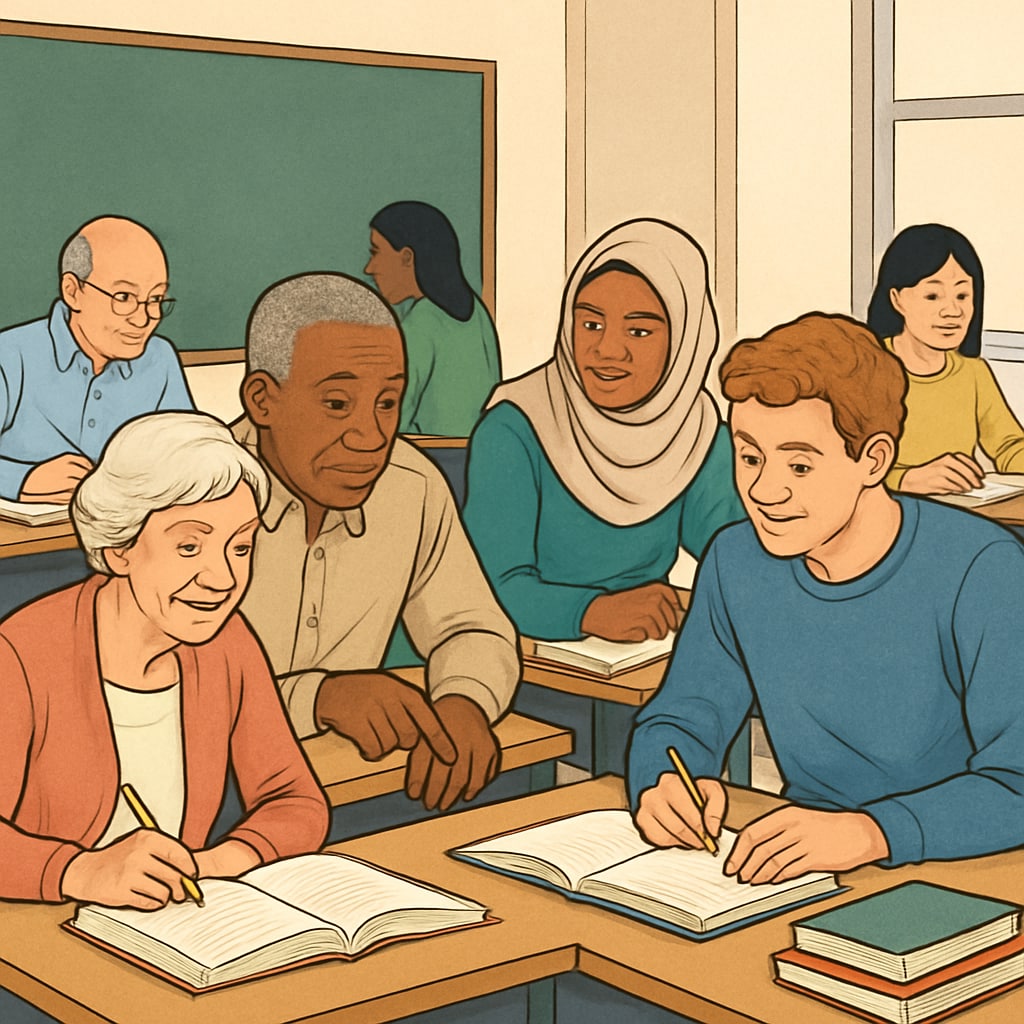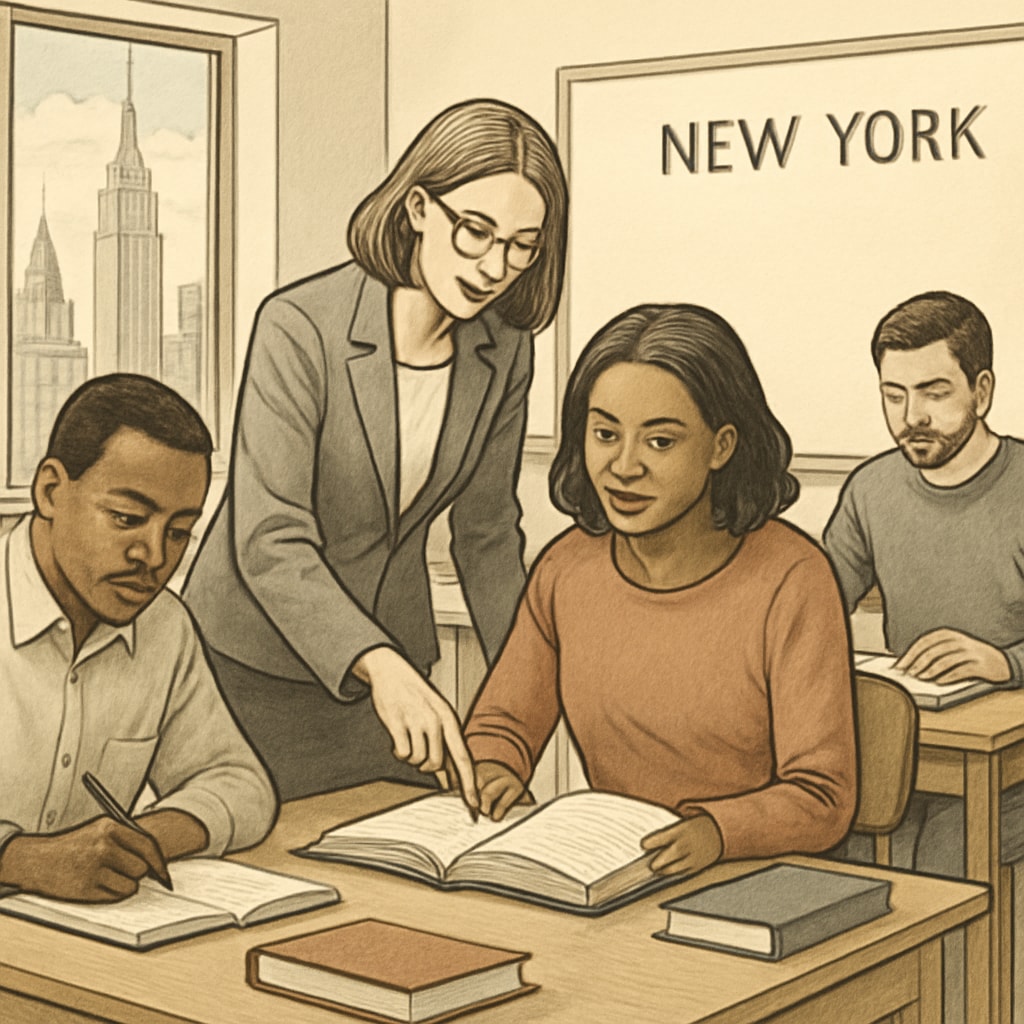For adult immigrants, integrating into a new society often involves overcoming significant challenges. Among these are the need for adult education, cultural adaptation, and basic knowledge. These elements are critical for building a foundation that allows immigrants to understand and participate in the social, economic, and cultural aspects of their new environment. In this article, we will discuss the importance of K-12 level education in helping adult learners adapt to Western cultures and provide a guide to finding suitable resources in New York City.
The Role of Basic Education in Cultural Adaptation
Adjusting to a new culture goes beyond mastering the local language. For many adult immigrants, gaps in basic education can hinder their ability to secure jobs, navigate daily life, and even connect with their communities. Subjects like math, science, and social studies, typically covered in K-12 education, are crucial for understanding many aspects of Western culture, from managing finances to engaging with local customs and history.
For example, a basic understanding of mathematics is necessary for budgeting, while knowledge of history can provide context about societal values and traditions. These skills empower immigrants to interact more confidently in their new environment. As a result, K-12 level education is not just for children—it serves as a stepping stone for adults entering a new cultural and social framework.

Finding Adult Education Resources in New York City
New York City, as a global melting pot, offers numerous resources for adult learners. Whether you are looking for free or low-cost programs, the city provides a range of options tailored to adult immigrants. Here are some of the most accessible resources:
- NYC Department of Education Adult and Continuing Education Programs: These programs offer free classes in English as a Second Language (ESL), adult basic education, and high school equivalency preparation. More information can be found on their official website.
- Local Libraries: Many libraries in New York, such as the New York Public Library (NYPL), provide adult literacy and basic education classes. They also offer resources in multiple languages to cater to the city’s diverse population.
- Community Centers: Organizations like the YMCA and Catholic Charities often host workshops and classes for adult immigrants. These include both academic and practical life skills training.
- Online Platforms: Websites like Coursera and Khan Academy offer free courses in subjects such as math, science, and social studies, which can be accessed at any time.
By taking advantage of these resources, immigrants can bridge knowledge gaps while also building confidence in their ability to navigate a new cultural landscape.

Overcoming Barriers to Education
Despite the availability of resources, adult immigrants often face barriers to accessing education. These may include work schedules, childcare responsibilities, or financial constraints. To address these challenges, many organizations offer flexible learning options such as evening or weekend classes, online courses, and childcare services during class hours.
For example, the Literacy Assistance Center in New York provides extensive support for adult learners, including programs that cater to working parents. Similarly, organizations like the International Rescue Committee (IRC) focus on helping refugees and immigrants integrate through tailored educational services.
In addition, building a supportive community is essential. Peer support groups and volunteer mentors can provide encouragement and practical advice, making it easier for adult learners to stay committed to their goals.
Conclusion: Lifelong Learning as a Bridge to Integration
Adult education, cultural adaptation, and basic knowledge are interconnected components that enable immigrants to thrive in their new environments. By addressing foundational academic gaps, adult learners can unlock opportunities for personal and professional growth, ultimately fostering a deeper connection with their adopted culture.
For immigrants in New York City, the journey toward cultural adaptation and self-sufficiency begins with seeking out the right educational resources. Whether through local programs, libraries, or online platforms, there are numerous pathways to success. As a result, lifelong learning becomes not just a means of survival, but a bridge to meaningful integration.
Readability guidance: This article uses concise paragraphs, active voice, and accessible vocabulary to ensure clarity. Resources are listed for easy reference, and transitional phrases help maintain flow throughout the text.


